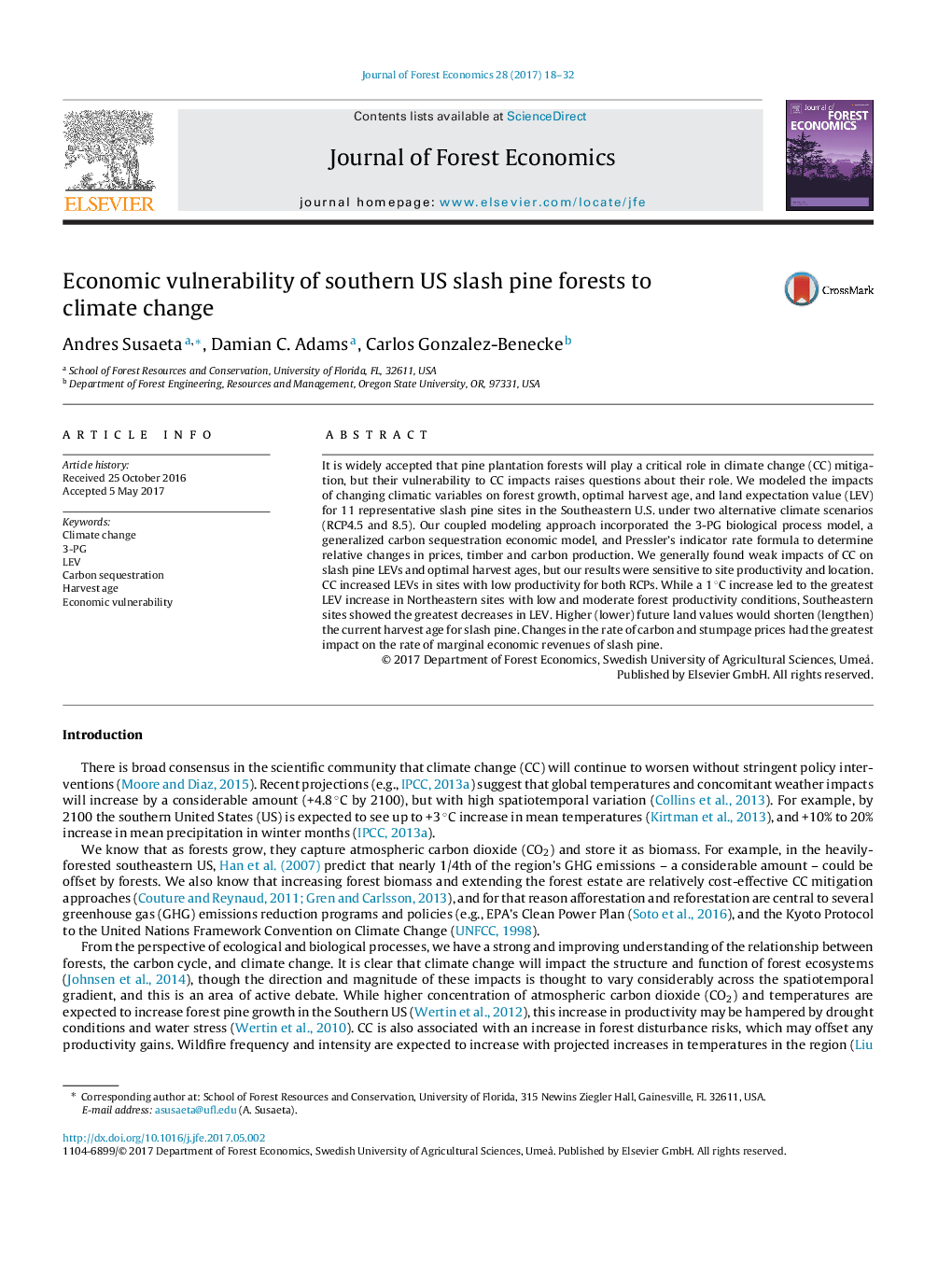| کد مقاله | کد نشریه | سال انتشار | مقاله انگلیسی | نسخه تمام متن |
|---|---|---|---|---|
| 4759828 | 1421738 | 2017 | 15 صفحه PDF | دانلود رایگان |
عنوان انگلیسی مقاله ISI
Economic vulnerability of southern US slash pine forests to climate change
ترجمه فارسی عنوان
آسیب پذیری اقتصادی جنوب ایالات متحده در جنگل های کاج به تغییر اقلیم
دانلود مقاله + سفارش ترجمه
دانلود مقاله ISI انگلیسی
رایگان برای ایرانیان
کلمات کلیدی
موضوعات مرتبط
علوم زیستی و بیوفناوری
علوم کشاورزی و بیولوژیک
علوم زراعت و اصلاح نباتات
چکیده انگلیسی
It is widely accepted that pine plantation forests will play a critical role in climate change (CC) mitigation, but their vulnerability to CC impacts raises questions about their role. We modeled the impacts of changing climatic variables on forest growth, optimal harvest age, and land expectation value (LEV) for 11 representative slash pine sites in the Southeastern U.S. under two alternative climate scenarios (RCP4.5 and 8.5). Our coupled modeling approach incorporated the 3-PG biological process model, a generalized carbon sequestration economic model, and Pressler's indicator rate formula to determine relative changes in prices, timber and carbon production. We generally found weak impacts of CC on slash pine LEVs and optimal harvest ages, but our results were sensitive to site productivity and location. CC increased LEVs in sites with low productivity for both RCPs. While a 1 °C increase led to the greatest LEV increase in Northeastern sites with low and moderate forest productivity conditions, Southeastern sites showed the greatest decreases in LEV. Higher (lower) future land values would shorten (lengthen) the current harvest age for slash pine. Changes in the rate of carbon and stumpage prices had the greatest impact on the rate of marginal economic revenues of slash pine.
ناشر
Database: Elsevier - ScienceDirect (ساینس دایرکت)
Journal: Journal of Forest Economics - Volume 28, August 2017, Pages 18-32
Journal: Journal of Forest Economics - Volume 28, August 2017, Pages 18-32
نویسندگان
Andres Susaeta, Damian C. Adams, Carlos Gonzalez-Benecke,
